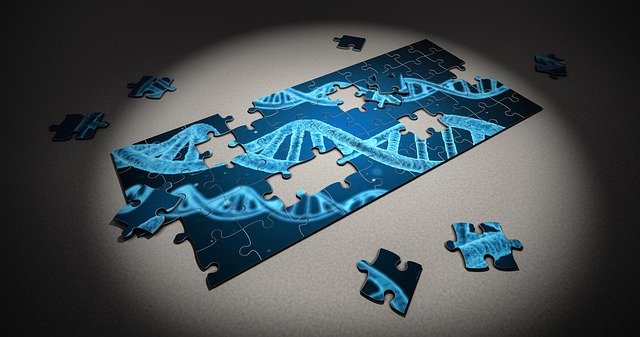At home genetic test kits have become quite popular in recent years. Companies like 23 and Me and Ancestry.com allow people to learn about their ethnic heritage and genetic make-up. It is interesting and fun for most but in more than a few cases people have learned some startling secrets. My family believed with were of ½ German and ½ Norwegian descent but discovered we are almost completely Scandinavian. There must be a story in there somewhere. Others have discovered information that calls into question their parentage. GED match is a free-to-use 3rd party site where individuals can upload their DNA results to find potential relatives. GED Match does not actually do the testing but rather serves as a repository to compare DNA sequences with others in their database. This is much like AFIS (Automated Fingerprint Identification System) is used for fingerprints by the US Department of Justice.
In 2012 PBS aired the show “Finding Your Roots” with Harvard professor Henry Louis Gates, Jr. Each episode had celebrities view their ancestral histories, finding connections with the famous or infamous and discovering some surprising emotional experiences. It ran 6 seasons and featured people like Angela Basset, Tea Leoni, Michael Strahan, Dustin Hoffman and Alan Dershowitz. Jimmy Kimmel and Martha Stewart discovered they are cousins. Lisa Kudrow of “FRIENDS” fame produced a similar show entitled “Who Do You Think You Are?” and “Ancestors in the Attic” was a Canadian television program for the History Channel that used CSI type genealogy and old fashioned detective work to unravel family histories.

Law Enforcement has made use of these sites to solve cold cases. NBC News reported in October 2019 that 50 rapes and homicides in 29 states had recently been solved using genetic genealogy. The most prominent use of this investigative technique was in the search for the Golden State Killer. Investigative genetic genealogy enters a suspect’s DNA into GED Match to assess the likelihood of making a positive identification. Joseph James DeAngelo, a married former police officer with 3 daughters was arrested June 2, 2018 for the murder of Janelle Lisa Cruz in Irvine, CA through the use of genetic genealogy. He was active from the mid-1970’s until his last known attack in 1986. He is believed to be responsible for over 100 burglaries, 50 rapes and 13 murders throughout California. “I believe, 100%, that DNA is the greatest tool ever given to law enforcement to find the truth, whatever that is,” said Anne Marie Schubert, independent D.A. Sacramento County, CA where the Golden State Killer was finally arrested.
CeCe Moore, a member of MENSA and the Chief Genetic Genealogist for Parabon-Nanolabs is a pioneer in this field and was the lead genealogist in the capture of the Golden State Killer. She is the investigative expert and educator who created the foundational control techniques used in this new field. The process uses genetic analysis combined with traditional historical and genealogy research to search for familial matches in public date bases to locate related family members. Parabon-Nanolabs is a cutting-edge DNA technology company involved in DNA analytics, therapeutics and forensics. Parabon averages 1 positive identification per week on cold cases going back an average of 25 years. Ms. Moore is responsible for 70 successful identifications for law enforcement since the Golden State case.
Ethical Questions about Privacy
All this of course has raised ethical questions about privacy. In the past GED Match allowed law enforcement access to their profiles unless people specifically opted out. DNA profiling has been used in China in the persecution of the Uyghurs, a mostly Muslim minority located in the northwest area. The US. Dept. of Justice takes DNA samples of immigrant detainees and asylum seekers and in local criminal cases, detectives often ask other family members for additional DNA samples. The use of DNA as a forensic technique in criminal investigations is commonplace. DNA is also used for parental testing, genetic testing for abnormalities, immigration eligibility, medical research and adoption searches.
Privacy Guidelines
In November 2019, the US Dept. of Justice issued guidelines establishing boundaries in forensic genealogy in light of concerns of police profiling and the perception of systemic racism in the United States. Proponents of the use of genetic genealogy cite the ability to find people who have committed crimes in the past when the use of DNA was in its infancy. They believe the benefits outweigh the risks in the growing debate over digital privacy. Should it only be used for violent crimes? Who decides? Only for cold cases? How far back can you go? These are legal, ethical and social concerns that need addressing. The security of this DNA data is a problem for every internet user and companies in every industry. You can delete your genetic profile from the GED Match site if you have privacy or security concerns. As with anything, there are inherent security risks with any shared data. In a recent Journal of Law and the Biosciences article , HIPAA (Health Insurance Portability and Accountability Act) and GINA (Genetic Information Nondiscrimination Act) have been shown to have ” few, if any, applicable legal doctrines or enactments provide adequate protection or meaningful control to individuals over disclosures that may affect them.”
“People think of genetic data as being personal-and it is. It’s literally part of their physical identity,” says Peter Ney, author and postdoctoral researcher in the Paul G. Allen School of Computer Science and Engineering. “This makes the privacy of genetic data particularly important. You can change your credit card number, but you can’t change your DNA.”
Genetic genealogy has allowed people to debunk family myths, learn important health information, solve crimes and make familial connections with people and places around the world. Where this technology takes us in the future, no one knows but it has enormous possibilities.
